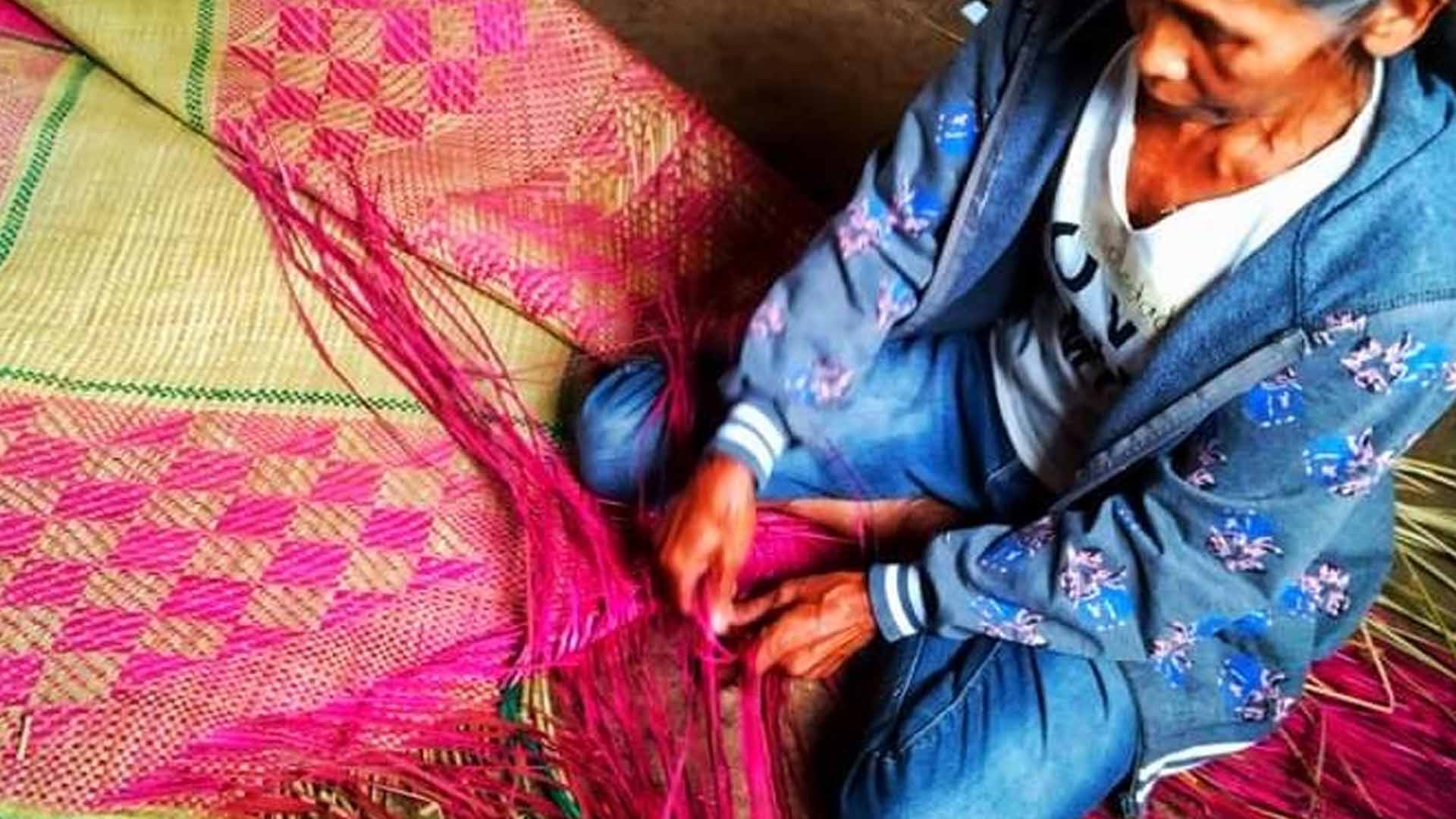A remote farming community in central Negros, previously under armed conflict, is thriving under a new livelihood, weaving of “tikog” (reed grass) into various household and lifestyle items, which has become a hit among buyers in the past two years.
With the assistance of the Philippine Army and the Association of Negros Producers (ANP), weavers of Sitio Madaja in Himamaylan City, Negros Occidental, organized into the Madaja Hand Weavers Association (Mahawa) and registered with the Department of Labor and Employment (DOLE) learned to make and market their products made of “tikog,” which is abundant in the area.
Maj. Gen. Marion Sison, commander of the 3rd Infantry Division, said the story of the Madaja weavers is inspiring.
“It inspires us to intensify our efforts in empowering geographically isolated and disadvantaged areas by establishing people’s organizations, enabling them to become more resilient while transforming into peaceful communities,” he said in a statement on Wednesday.
With residents mainly indigenous people from the Bukidnon Magahat tribe, Sitio Madaja was among the original sitios in central Negros considered as the hard-core areas of the New People’s Army until it was declared conflict-free in 2021, according to the 94th Infantry Battalion (IB).
“When I assumed my post in March 2022, we deployed modified community support program teams to revisit previously cleared communities, including Sitio Madaja. We discovered their potential in weaving sleeping mats. Since they have a limited market, we looked for partners to help them enhance the quality of their products and also find a market for these,” Lt. Col. Van Donald Almonte, commander of 94IB, said.
In June 2022, the ANP team led by external affairs manager Sybel Nobleza and other partner organizations joined troops of 94IB in evaluating the potential of the sitio in producing handmade items and the availability of raw materials.
“We discovered that weaving sleeping mats is their recreational activity after tending to their farms. They were earning only PHP900 to P1,000 each month selling family-sized sleeping mats to neighboring communities,” Nobleza said.
In July 2022, the ANP conducted an Entrepreneurial Mind-Setting Workshop for the residents, followed by the Product Development Training in the following month, participated by the elders or the “master weavers” and their children and grandchildren.
The 94IB launched “Project Tikang” in Sept. 2022 to empower the residents by providing the necessary resources, training, market access, and support to establish sustainable livelihoods through the support of the concerned government agencies and non-government organizations.
The products of the Madaja “tikog” weavers were showcased during the ANP’s 36th Negros Trade Fair in Makati City on the same month, with the support of partners, particularly the Provincial Peace and Order Council of Negros Occidental.
They sold items such as sleeping mats, table runners, coin purses, hats, and fans with traditional patterns unique to Madaja.
The Mahawa generated PHP461,000 in bookings and sales and earned a quarterly income of PHP86,000 from their products displayed at the ANP Showroom in this city.
Mahawa chairman Wilme Garlet is thankful for the opportunity provided by the ANP and the 94IB for them to increase their income through the art of “tikog” weaving.
Using “tikog,” artisans can also produce bags, pouches, storage boxes, and other handmade items.
Last month, a team from the ANP and troops of the 94IB visited Sitio Madaja to bring assistance from the city and provincial government and other various organizations to respond to their needs, like limited power supply, education, and agricultural resources.
The residents received solar lights with radios, hygiene kits, books, and farming supplies, and the ANP also purchased their products.
“This is an initiative for sustainable development and to ensure that no one is left behind in fostering a brighter future for Sitio Madaja and similar communities,” Almonte said. (PNA)





















